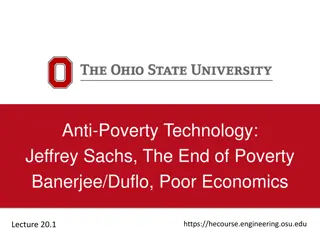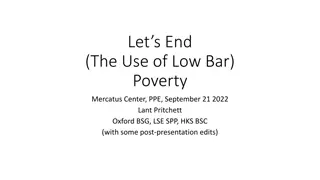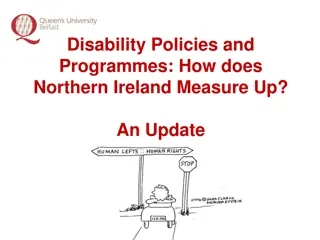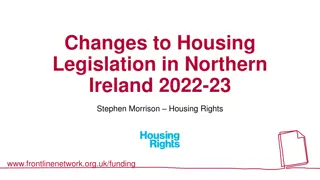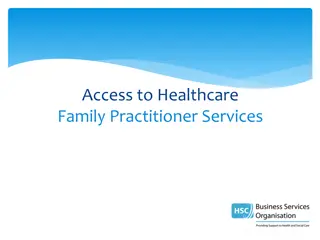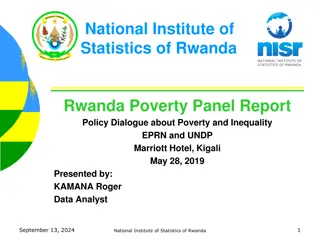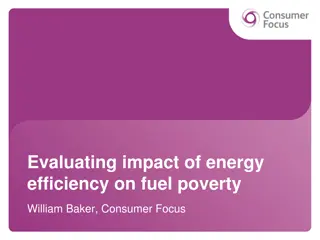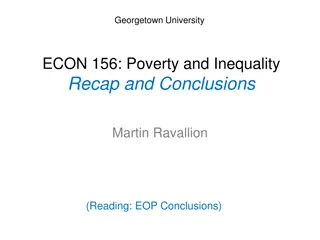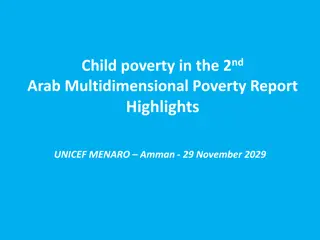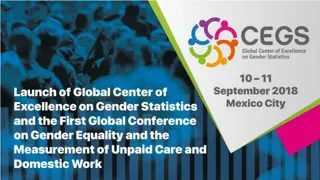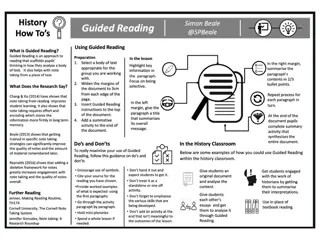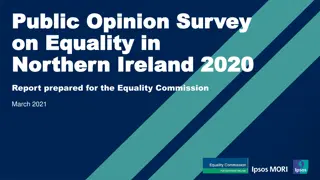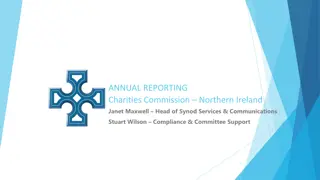Anti-Poverty Practice Framework for Social Work in Northern Ireland
This framework emphasizes the importance of addressing poverty in social work practice in Northern Ireland. It aims to help social workers recognize and respond to the impact of poverty on individuals, families, and communities. Poverty is identified as a major social injustice, and social work professionals play a crucial role in tackling it to improve social well-being. Despite challenges like food insecurity and rising energy prices, the framework underscores the necessity for social workers to prioritize anti-poverty practices to safeguard vulnerable populations.
Download Presentation

Please find below an Image/Link to download the presentation.
The content on the website is provided AS IS for your information and personal use only. It may not be sold, licensed, or shared on other websites without obtaining consent from the author. Download presentation by click this link. If you encounter any issues during the download, it is possible that the publisher has removed the file from their server.
E N D
Presentation Transcript
ANTI-POVERTY PRACTICE FRAMEWORK FOR SOCIAL WORK IN NORTHERN IRELAND Darren Strawbridge Professional Social Work officer Office of Social Service Department of Health
WHEN THE ANTI POVERTY FRAMEWORK FOR SOCIAL WORK IN NORTHERN IRELAND WAS LAUNCHED ON 3RD JULY 2018 IT WAS WARNED THAT POVERTY WAS THE ELEPHANT IN THE ROOM OF SOCIAL WORK PRACTICE I THINK WE WOULD ALL AGREE THAT IT IS NO LONGER THE ELEPHANT IN THE ROOM!!
Anti-Poverty Framework for social work in NI The Framework seeks to bring poverty into the foreground of social work practice. It aims to help social workers recognise and respond to the impact of poverty on individuals, families and communities. Poverty is a major social injustice. Social work as a profession committed to social justice must work to tackle poverty. Whether it s people with mental health problems, people with a disability, carers or children and families. The purpose of social work is to improve and safeguard social well-being and tackling poverty must be central to that aim.
What is Poverty? When a person s resources are not enough to meet their basic needs and allow them to take part in society. This could mean struggling to cover food and energy bills, watching every penny spent, worrying that nothing is set aside for a sudden emergency such as the cooker breaking down, or being unable to afford the cost of transport needed to visit a friend or go to a social club. AGE UK (2015). While it is useful for social workers to understand the various definitions used, it is not suggested that social workers need to measure or define individual poverty levels before responding. Self-report and social work observation and assessment skills should be sufficient to prompt social workers to think about anti-poverty practice.
As Northern Ireland entered the pandemic, nearly one-in- five people in Northern Ireland lived in poverty, including over 100,000 children. With 1 in 14 households in food insecurity, the recent spike in energy prices, and wider inflation, as well as certain areas of Northern Ireland, groups such as people in workless families, disabled people, carers and people in ethnic minority households having much higher poverty rates across Northern Ireland (JRT, 2022) Poverty in Northern Ireland
Why Should Social Workers be Concerned with Poverty? Social work is committed to social justice and poverty is a social injustice. Social work s purpose is to improve and safeguard social well-being. Tackling poverty is central to enhancing social well-being. Social work works with systems and understands the systemic nature of poverty which is created by structural and societal inequalities. Social work rejects individual, victim-blaming narratives of poverty
Impact of Poverty Poverty increases the risk of mental health problems and can be both a causal factor and a consequence of mental ill health People with a disability are more likely than people without to be disadvantaged in multiple aspects of life. They are more likely to be unemployed, gain fewer qualifications, receive lower pay and face higher living costs Approximately 2.1 million informal carers are in poverty in the UK People living in poverty are more likely to experience crime. Poverty if combined with other stressors can lead to an increase in the likelihood of someone committing crime. Children are more likely to be living in poverty than the general population. People from ethnic minority backgrounds experience inequality and can face specific problems in terms of finding suitable employment, housing, education, and health.
What can Social Work do!! It s very important that we as social work practitioners think about poverty and the impact it may have on those we support. We need to understand it and it s important as always in social work practice that we understand it at an individual level and at a wider societal level. It s also extremely important that our responses to poverty are well informed. Our responses to poverty should be co produced with those who experience poverty and we must be careful not to impose our own narratives of poverty or solutions on other people. Poverty aware practice belongs across the whole social work practice continuum from prevention to care and control. Anti poverty practice should be embedded in routine processes such as assessment, planning and review
Examples Advocating with Housing and social security service services about entitlements for a service user Providing Article 18 (children and Article 15 (Adults) payments in term of cash grants or urgent food supplies Carers cash grants under the Carers and Direct and Direct Payments (NI) Act 2002 Referring to local charities Offering advice to those who want to take up employment Supporting and promoting community empowerment
The framework wishes to support social workers to feel empowered to tackle poverty in the same way that social workers address racism, sexism and disability discrimination. Social Workers can tackle poverty in a multi layered way within their own spheres of influence. Conclusion Social workers should respond to the injustice of poverty within the context of anti oppressive practice and be able to challenge systems to create a more equitable society. Can I ask that you begin to think about ways of doing this in your own practice?





